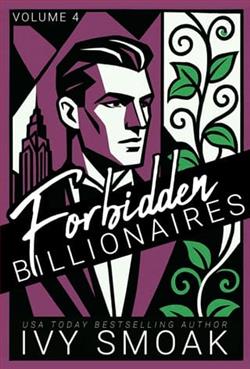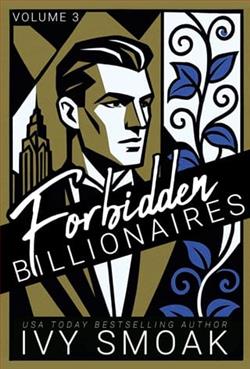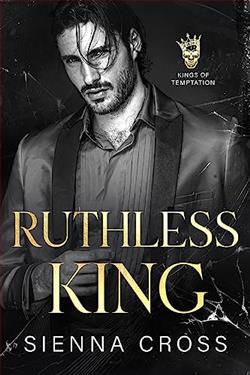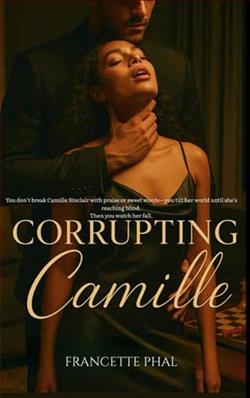Page 36 of Your Every Wish
“Where’s your envelope?” Kennedy says as she frantically sorts through the contents of her own envelope for the fourth time since we got home. “Please tell me it’s here and not in San Francisco.”
I rush to my room, knowing that it’s here . . . somewhere. I tear half my chest of drawers apart searching for it, then find it in the bottom of my suitcase.
“How do you think she . . . Misty . . . even knows about the envelopes?”
“Don’t know, don’t care. Give me that.” Kennedy swipes the envelope out of my hand and practically tears it open.
“If it’s not in yours it’s not in mine.” I point to the documents she’s now spreading across the coffee table. “See! Same papers. Same everything. There is no key, Kennedy.”
She’s separating each paper, methodically sorting through the contents of the envelope the same way she did hers.
“Even if there’s a key, so what? We don’t even know what it goes to.”
“A safe-deposit box. Don’t you remember? Townsend said Willy left us the contents of his safe-deposit box. Well, where is it? Where’s the contents?”
“It was part of the cash we got. The four thousand.”
“What if it wasn’t? What if there’s more?”
“There’s not.” I plop down on the sofa and huff out a breath. “I need to tell you something.”
Kennedy ignores me and continues sifting through the pages, shuffling through them like they’re a deck of cards. She’s back to patting down the envelope as if there’s a secret compartment in there.
“Will you please listen to me?” I try to get her attention but she’s so intent on finding this mysterious—and nonexistent—key that she’s lost to me.
She whacks the envelope on the table once, twice, and three times for good measure, then goes back to her own envelope.
When is she going to get it through her head that there’s no key? No safe-deposit box. No pot of gold. By the time Willy Keil died, he was destitute and doing ten years at a federal prison in Lompoc.
She’s back to my set of documents now, sifting through the letter Townsend included in our paperwork, presumably looking for clues. The small white envelope the letter came in is next. She runs her hand inside, searching every crevice.
All at once, her expression changes and she starts banging the envelope on the table until a small golden key drops out. My mouth hangs open.
She hurriedly returns to her letter and envelope, performing the same ritual as she did on mine. But there’s nothing.
She turns to me, suspicion burning in her eyes. “Why was the key in yours and not in mine?”
“I have no idea. What does it matter? You found the key, Kennedy! You found the freaking key!”
“What do you know, Emma? What are you keeping from me?”
“Nothing. I had absolutely no knowledge of the key. None whatsoever. I didn’t even believe it existed until you found it.”
“And let me guess. You have no clue where to find Willy’s safe-deposit box either.”
“Nope. But Townsend will. Let’s call him.”
This doesn’t seem like a good time to tell her about Willy’s insider trading and last known address. No, I’ll save that for later.
Kennedy rummages through her purse for her phone and taps out Townsend’s number. “Hi, this is Kennedy Jenkins. Is Mr. Townsend available? It’s kind of an emergency.” She holds up her phone. “I’m on hold.”
I can hear Muzak in the background. “Love Me Do.”
I can tell when Mr. Townsend comes on because Kennedy cups the phone to her ear and moves to another room. She probably thinks I’ll race ahead of her to the safe-deposit box and clean it out. Jeez. I guess if I had a mother like hers, I’d have trust issues, too.
My own mother is a saint. Well, a saint but not perfect—she snores like an asthmatic dog, is disgustingly neat, and never met an appointment she wasn’t late for, but a wonderful person who would never steal from anyone, let alone her own daughter. She raised me single-handedly, working her ass off to put herself through dental hygienist school, so she could support us. We may not have owned a house or a new car—Mom drove a used Honda Civic with more than 200,000 miles on it—or nice furniture, but we got by.
What Mom couldn’t afford, Grandma and Grandpa Tuck made up for, like my orthodontics (at least Mom could finagle a professional discount) and college education. They weren’t well-to-do either but had just enough to help out where we most needed it.















